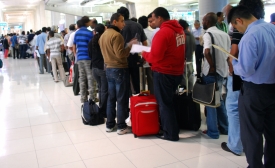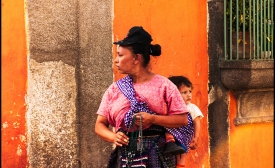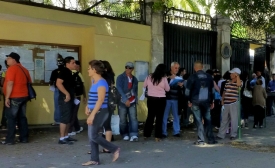immigration
In January 2012, amid concerns that the U.S. was failing to capitalize on global tourism growth, President Obama issued an executive order aimed at improving U.S. visa processing in Brazil and China.

Dynon contends that simplifying visa processes gives a country's image a major boost

When it comes to understanding unaccompanied child immigrants, the U.S. is missing the mark.
Simon Walker, director-general of the Institute of Directors, said he was "appalled" by how overseas students had been caught up in targets for reducing immigration into the UK.
Despite what politicians say, the border crisis is not an immigration problem or a border security problem. These kids — these tired, poor, huddled masses — are not economic migrants. They — these homeless, tempest tossed to us — are seeking refuge from violent gangs and corrupt cops in Central America. If we deal with the problem that exists instead of having the fight politicians want, then we can do some good.
“Migrants from everywhere, entrenched along the rail ties. Far away from where they come, further away from where they go,” singer Eddie Ganz croons in Spanish over the Caribbean beat of the marimba, a wooden xylophone-like instrument from Guatemala. The song, and others like it, are part of a U.S. Customs and Border Protection campaign to deterring illegal immigration to the United States.
The literature on the relationship between public diplomacy and visas is as polarized as the effects that a nation’s visa policy can have on its image. Visa liberalization policies, such as the broadening of visa waiver programs, can often enhance a nation’s public diplomacy strategy.

Immigration practitioner Nicholas Dynon explores how visa policies can either boost or threaten a nation's public diplomacy strategy.







